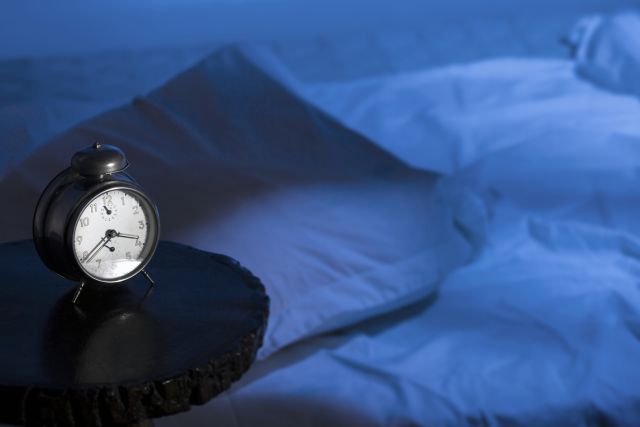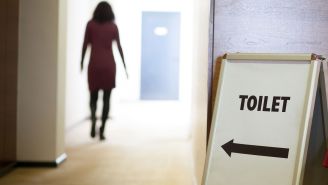Updated on August 15, 2024.
Do you visit the bathroom two or more times a night? Here's something to consider: a checkup.
Frequent urination at night (nocturia) can increase with age—and quite often it’s not due to a medical concern. But it may be best to see a healthcare provider (HCP) to rule out any potential underlying issues, as frequently waking up to pee at night may be linked to possible health concerns. Here’s what to know about nocturia.
What is nocturia?
Although it’s typical to wake up occasionally or even once each night to pee, nocturia refers to needing to pee often—two or more times—during the night. Nocturia is not itself a health condition, though it can sometimes be a symptom of one.
Also called nocturnal urinary frequency, nocturia is similar to daytime frequent urination and to an overactive bladder, but nocturia specifically refers to excessive nighttime urination.
How common is nocturia?
Anyone of any age, gender, or sex can experience nocturia. About a third of adults over age 30, and half of adults over age 50, are affected by nocturia, so it’s quite common.
People assigned male at birth (AMAB) tend to experience it more often over age 50, and people assigned female at birth (AFAB) tend to experience it more before age 50.
Symptoms of nocturia
People with nocturia are not able to sleep for a full 6-8 hours during the night without needing to use the bathroom more than once. Sometimes a person with nocturia pees more volume, rather than multiple times. This is called polyuria.
Nocturia can also cause fatigue during the day, as waking up to pee can interrupt the natural sleep cycle.
One complication of nocturia is that making sleepy trips to the bathroom at night can raise the risk of falling, especially for older adults.
Causes of nocturia
Nocturia has many possible causes, many of which are benign in nature. Some common reasons people may experience nocturia include:
- Drinking too many liquids in the hours before bedtime
- Drinking beverages with alcohol or caffeine close to bedtime
- Taking medications containing diuretics (“water pills”)
- Habit or routine
Sometimes nocturia is caused by a potentially more serious health condition that should be addressed. These health conditions may include:
- Reduced bladder capacity: Sometimes an obstruction or stone in the bladder, an infection, or health condition that affects the bladder (such as interstitial cystitis, a chronic condition that causes pain and inflammation in the bladder) can make it hard to fully fill or fully empty your bladder.
- Diabetes: One symptom of diabetes is frequent urination.
- High blood pressure and heart disease: These conditions can affect how fluids are stored and circulate in the body, which can lead to nocturia.
- Benign prostatic hyperplasia (BPH): This condition causes the prostate to get bigger, so it may partially block the urethra and cause urinary symptoms, including nocturia.
- Obstructive sleep apnea (OSA): Nighttime urination, along with snoring, short periods of time when breathing stops during sleep, feeling extra tired during the day, headaches, or trouble concentrating, can all be signs of OSA.
- Pelvic organ prolapse: This condition is when the organs in the pelvis fall out of place and put pressure on the bladder. It can cause a frequent urgency to pee.
- Childbirth, pregnancy, and menopause: All of these can affect the body in a variety of ways that can cause excessive urination at night.
- Restless legs syndrome (RLS): This condition can sometimes be associated with nocturia.
- Edema: When fluid builds up in certain parts of the body, like the lower legs and feet, it may be displaced when a person lays down. This may increase the production of urine, leading to nocturia.
Having nocturia can be a sign of underlying health conditions, which may indicate a slightly higher risk of early death, according to a 2020 systematic review published in the Journal of Urology.
The good news? Many nocturia-causing conditions are treatable.
Treatments for nocturia
The first step in treating nocturia is to determine what’s causing it. If it’s a symptom of another medical condition, then that condition should be addressed promptly by your HCP.
Whether or not your nocturia is caused by another condition, there are lifestyle changes you can make that might help. These include:
- Try not to drink too much liquid in the evening.
- Avoid caffeine in the afternoons and evenings.
- Ask your HCP what is the best time to take your diuretic, and if you should avoid taking it six or more hours before going to bed.
- Keep your feet elevated when you’re sitting down to help distribute fluid around your body.
- Try wearing compression stockings, which can help keep fluid from accumulating in your feet or lower legs.
- Practice pelvic floor muscle exercises to strengthen them.
To reduce the risk of falling during nighttime trips to the bathroom, make sure the path leading to the bathroom is totally clear of items that could be tripped over, and use a motion-activated nightlight. You may even choose to use a bedside commode or urinal, which can also help you get back to sleep faster.
If you’re experiencing symptoms of nocturia, consult with your HCP, who can help you determine what might be causing it and how best to treat it.






